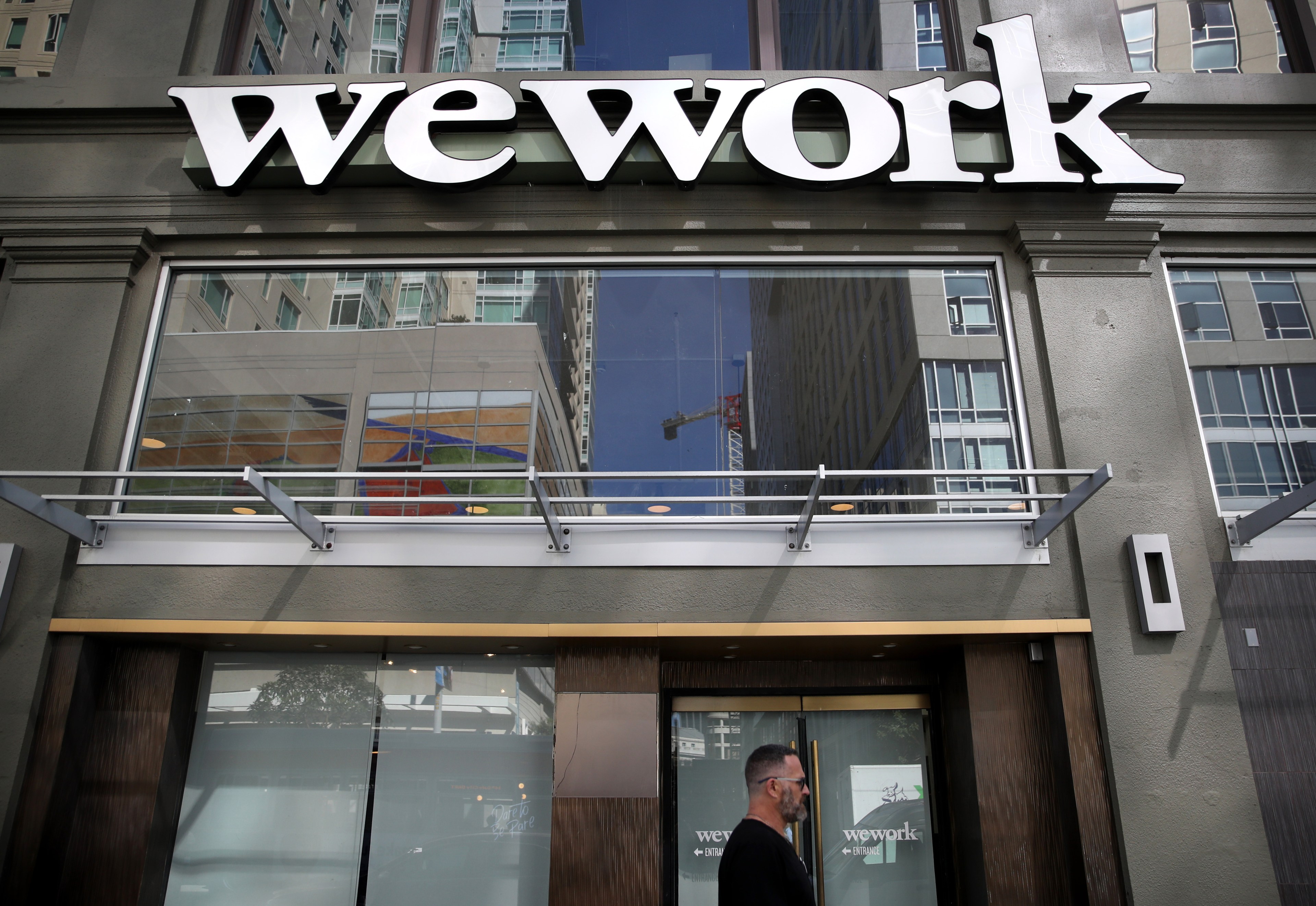WeWork is getting hounded by its landlords for $250 million worth of unpaid rent after it reneged on a massive lease in Downtown San Francisco.
In August, the embattled coworking giant wrote in a letter to its landlords—real estate investors Kennedy Wilson and Japanese construction giant Takenaka—that it had vacated the entirety of the 250,000-square-foot space it leased at 430 California St.
WeWork signed the lease in March 2018 and signed a written guarantee promising “payment of all rent, expenses and charges” as part of the lease, which was slated to run until the end of 2036.
According to a lawsuit filed Oct. 16 in San Francisco Superior Court, the company stopped paying rent in July, a month before the letter was sent. The company received a notice of default following that nonpayment.
Kennedy Wilson and Takenaka are requesting past due rent and future rent “discounted to present value,” among other charges, totaling $250 million, as a result of WeWork breaching its lease.
This suit was first reported by the San Francisco Business Times. Attorneys for Kennedy Wilson and Takenaka did not immediately respond to a request for comment.
Up until 2021, 14 floors of 430 California St. of WeWork’s space were occupied by cryptocurrency firm Coinbase. The space was put back on the market shortly after Coinbase CEO Brian Armstrong expressed a desire for his company to go remote-first.
A WeWork spokesperson disputed the claims in the suit. “We strongly disagree with the allegations in this lawsuit,” the spokesperson said in an emailed statement Monday. “We continue to be in active negotiations with the landlord about WeWork’s future at this location.”
In a public letter last month, CEO David Tolley wrote the company would “renegotiate nearly all [its] leases” to right-size its property portfolio. At the end of 2022, WeWork had 779 locations globally.
“As part of these negotiations, we expect to exit unfit and underperforming locations and to reinvest in our strongest assets as we continuously improve our product,” wrote Tolley, who was made the permanent WeWork CEO this month after the sudden exit of Sandeep Mathrani.
Issues with WeWork’s financial position spell more trouble for a commercial real estate market already reeling from high borrowing costs and record vacancies, leading to a growing number of property owners defaulting on their debts.
This lawsuit is the latest development in what has been an especially challenging year for WeWork. The company has seen a number of lawsuits over rent payments and defaults on loans, departures of top executives and rapidly tanking stock value. (WeWork’s stock currently sits at just under $2 a share, a nearly 97% drop from the start of the year.)
Property owners of WeWork’s 515 Folsom St. location sued the coworking company in January for more than $500,000 in past and future rent. In June, lenders pushed to foreclose WeWork’s 600 California St. space after it allegedly fell behind on a $240 million loan.
Meanwhile, WeWork’s president and chief operating officer, Anthony Yazbeck, departed earlier this week, which he stated was not a result of conflicting ideas about the company’s operations or strategy.
